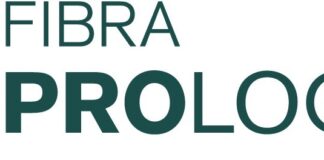BETHESDA, Md., May 24, 2021 /PRNewswire/ —
WHAT:
Women taking 1,000 mg of docosohexanoic acid (DHA) daily in the last half of pregnancy had a lower rate of early preterm birth than women who took the standard 200 mg dose, according to a study funded by the National Institutes of Health. Women who entered the study with the lowest DHA level had the greatest reduction in early preterm birth, which is birth before 34 weeks of pregnancy and which increases the risk of infant death and disability
The study was conducted by Susan E. Carlson, Ph.D., at the University of Kansas Medical Center, Kansas City, and colleagues. It appears in EClinicalMedicine. Funding was provided by NIH’s Eunice Kennedy Shriver National Institute of Child Health and Human Development (NICHD).
Previous studies on DHA and other omega-3 fatty acids, which are nutrients found in fish and eggs and supplements like algal oil, and their possible effects on the rate of early preterm birth have been inconclusive and have not identified a specific type or dose of omega-3 fatty acids.
Researchers enrolled nearly 1,100 women and compared the early preterm birth rate of women given 1,000 mg of DHA to those given 200 mg. Overall, 1.7% of women in the high dose group delivered early preterm compared to 2.4% in the standard dose group. Women in the high dose group with low DHA levels at study entry had the greatest reduction in early preterm birth (2% rate, compared to a 4.1% rate for those with low DHA levels on the standard dose). Among women who had high DHA levels at study entry, the rate of early preterm birth was low and did not differ by dose (1.4% vs. 1.1%). The authors called for screening DHA levels in pregnancy so that women with low levels could consider taking a higher daily dose.
WHO:
Monica Longo, M.D., Ph.D., NICHD Pregnancy and Perinatology Branch, is available for comment.
ARTICLE:
Carlson, SE. Higher dose docosahexaenoic acid supplementation during pregnancy and early preterm birth: A randomised, double-blind, adaptive-design superiority trial. EClinicalMedicine.2021. https://doi.org/10.1016/j.eclinm.2021.100905.
About the Eunice Kennedy Shriver National Institute of Child Health and Human Development (NICHD): NICHD leads research and training to understand human development, improve reproductive health, enhance the lives of children and adolescents, and optimize abilities for all. For more information, visit https://www.nichd.nih.gov.
About the National Institutes of Health (NIH): NIH, the nation’s medical research agency, includes 27 Institutes and Centers and is a component of the U.S. Department of Health and Human Services. NIH is the primary federal agency conducting and supporting basic, clinical, and translational medical research, and is investigating the causes, treatments, and cures for both common and rare diseases. For more information about NIH and its programs, visit https://www.nih.gov.
SOURCE National Institutes of Health (NIH); Eunice Kennedy Shriver National Institute of Child Health and Human Development






